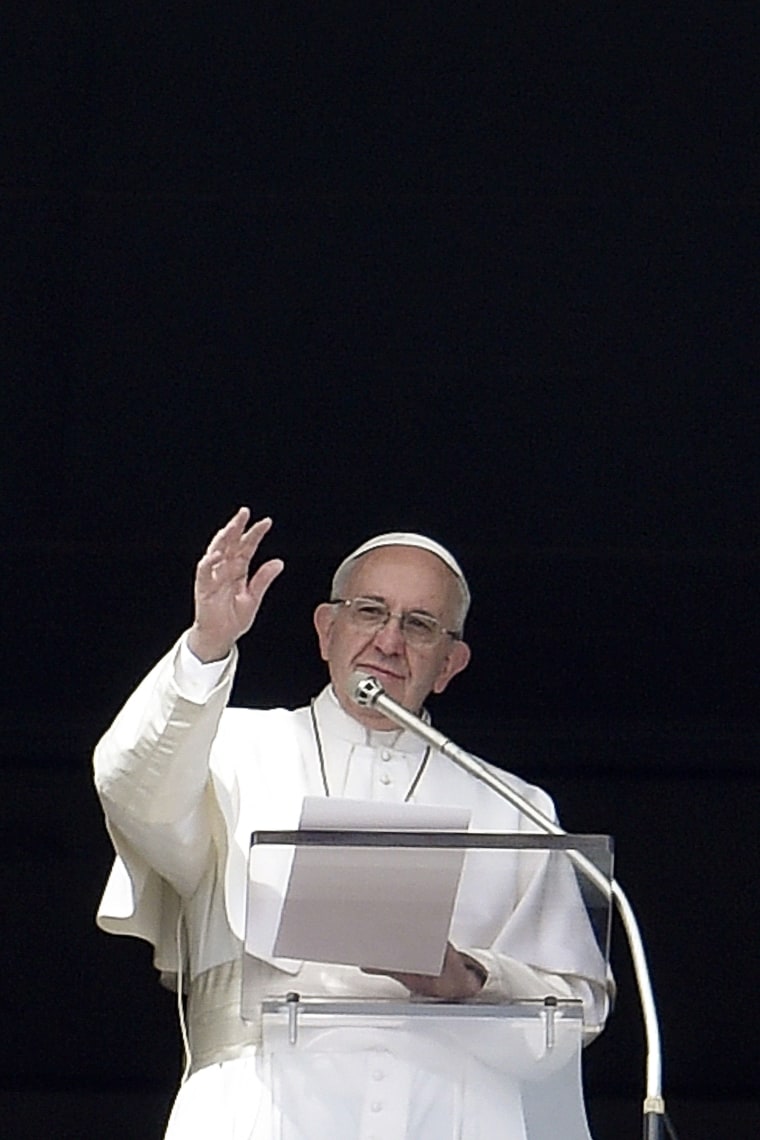Pope Francis has emerged as a formidable voice in the global conversation on human rights, particularly through his bold stance against the death penalty. His leadership reflects not only a profound commitment to the sanctity of life but also an unwavering belief in the potential for redemption and reform. By declaring capital punishment inadmissible in all cases, Pope Francis has challenged the world to reconsider its approach to justice and retribution.
This declaration resonates deeply across various cultures and legal systems worldwide. It invites individuals and nations alike to embrace a more compassionate and restorative form of justice that values life above vengeance. As the leader of one of the largest religious communities globally, Pope Francis's words carry significant weight, inspiring both believers and non-believers to reflect on the moral implications of state-sanctioned executions.
The Vatican's CDF has made substantial changes to the CCC regarding the death penalty, asserting that capital punishment is now considered inadmissible. This decision was made following an audience with Pope Francis earlier this year and received his approval. The updated doctrine emphasizes the importance of protecting human dignity and rejecting any form of violence that compromises it. In doing so, the Catholic Church aligns itself more closely with modern ethical standards promoting peace and reconciliation over punishment and retaliation.
Reaffirming the Unacceptability of Capital Punishment
In line with these revisions, Pope Francis has firmly stated that today capital punishment is unacceptable, regardless of how grave the crime committed by the condemned individual might be. This statement underscores a shift towards prioritizing rehabilitation and respect for human life within judicial practices worldwide. By taking such a strong position, he encourages societies to adopt alternative methods of addressing criminal behavior that do not involve taking another person's life.
His assertion highlights the need for penal systems to focus on healing rather than harm, ensuring that victims' families receive justice without perpetuating cycles of violence. Furthermore, it calls upon governments to invest in programs aimed at reintegrating offenders back into society after serving their sentences instead of resorting to irreversible measures like execution.
This perspective aligns with broader trends advocating for humane treatment of prisoners and emphasizing education over incarceration. Through his advocacy, Pope Francis contributes significantly to shaping future discussions around criminal justice reform while reinforcing core Christian principles centered around love, forgiveness, and mercy.
Teaching Against the Death Penalty: A Gospel-Centered Approach
The Church now teaches, guided by the light of the Gospel, that the death penalty is inadmissible because it constitutes an assault on the inviolability and dignity of the human person. This teaching represents a significant evolution in Catholic thought concerning capital punishment. It builds upon centuries-old traditions rooted in compassion and respect for all forms of life, urging contemporary followers to uphold these values even when faced with difficult decisions about justice.
By incorporating this belief into official doctrine, the Church reaffirms its dedication to fostering environments where every individual can experience growth and transformation. Such an approach recognizes that no matter what mistakes someone may have made, they retain inherent worth deserving protection under law. Moreover, it challenges existing paradigms surrounding retributive justice models prevalent today, proposing instead frameworks based on restoration and understanding.
This revised catechism serves as a powerful reminder of Christianity's foundational tenets emphasizing hope and renewal. It invites everyone—believers or otherwise—to join efforts toward creating safer communities through constructive dialogue and collaboration rather than punitive actions leading nowhere productive.
A Universal Call for Justice Reform
Pope Francis declared the death penalty inadmissible in all circumstances, marking a pivotal change in Catholic teachings previously allowing it under certain conditions. This bold move signifies a definitive stance against state-sanctioned killing, encouraging nations worldwide to reassess their own policies regarding capital punishment. By making this amendment official, the Church demonstrates its ongoing commitment to advancing human rights agendas globally.
Historically, many popes from Benedict XV onward emphasized themes of mercy and humanity in their teachings, gradually steering away from supporting harsh penalties like execution. With Pope Francis's recent update, this trajectory reaches its zenith, reflecting decades—if not centuries—of theological progression culminating in today’s comprehensive rejection of lethal sanctions. This development carries profound implications for international relations and domestic legislation alike, potentially influencing countless lives caught within flawed judicial systems.
Beyond religious circles, this initiative could inspire secular movements striving for similar objectives related to abolishing capital punishment altogether. As momentum gathers behind calls for more equitable and empathetic approaches to dealing with offenders, there exists unprecedented opportunity for meaningful change across borders. Ultimately, Pope Francis's leadership exemplifies courage and foresight needed during challenging times when humanity seeks guidance toward brighter horizons built upon shared ideals of fairness and decency.

